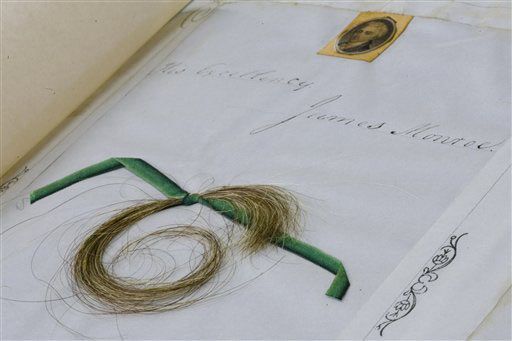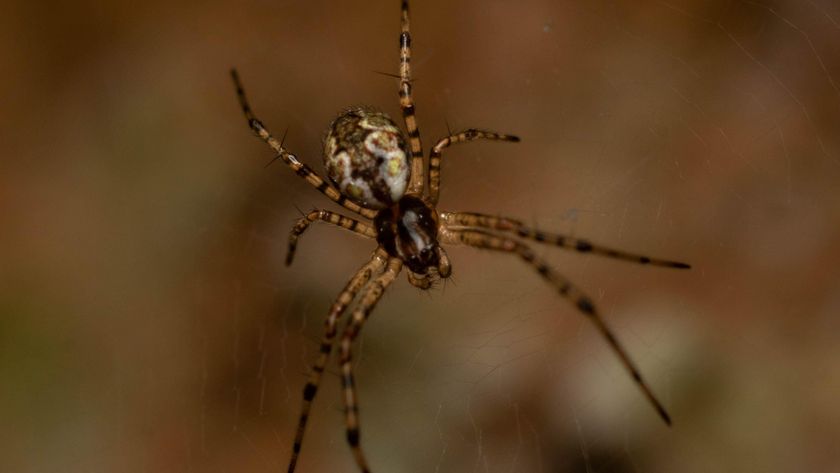All the Presidents' Hair on Display

PHILADELPHIA (AP) — It might be the strangest way to spend Presidents Day.
For the first time, The Academy of Natural Sciences is displaying a scrapbook that has locks of hair from the first 12 U.S. presidents. It will be on view Feb. 16-18.
The presidential "hair album" was assembled by Peter Arvell Browne, a Philadelphia attorney and scholar of the natural sciences who collected thousands of samples of animal fur and human hair in the 1840s and 1850s and organized them in a dozen leather-bound volumes.
Browne also wrote to presidents still living during his lifetime — 1762-1860 — and to the families of those who had died. His letters and their responses are included in the book along with the strands of hair.
His requests for hair weren't considered odd, as saving a loved one's locks in a family "hair album" was popular in the 19th century.
Because of the scrapbook's age and delicate contents, it will be displayed under glass and opened only to the page featuring George Washington's brown-and-gray locks. Photographs will be shown of the other presidents' hair, from John Adams to Zachary Taylor.
Thomas Jefferson's hair was reddish with gray when he died and James Monroe had dark curls.
Sign up for the Live Science daily newsletter now
Get the world’s most fascinating discoveries delivered straight to your inbox.
In his first letter to Brown, Andrew Jackson's son apologized that he could not immediately send a lock from the seventh president, noting that his father recently had a "close cut" that would take a fortnight to grow out.
"There's something very human and touching about it," longtime academy curator Robert Peck said of the collection. "It gives you a sense of who they were as people."
Browne also acquired hair samples from Napoleon Bonaparte, Daniel Webster, many Pennsylvania governors, signers of the Declaration of Independence and other political figures.
- Top 10 Ailing Presidents
- Quiz: The State of the United States
- Abraham Lincoln: The 16th President












